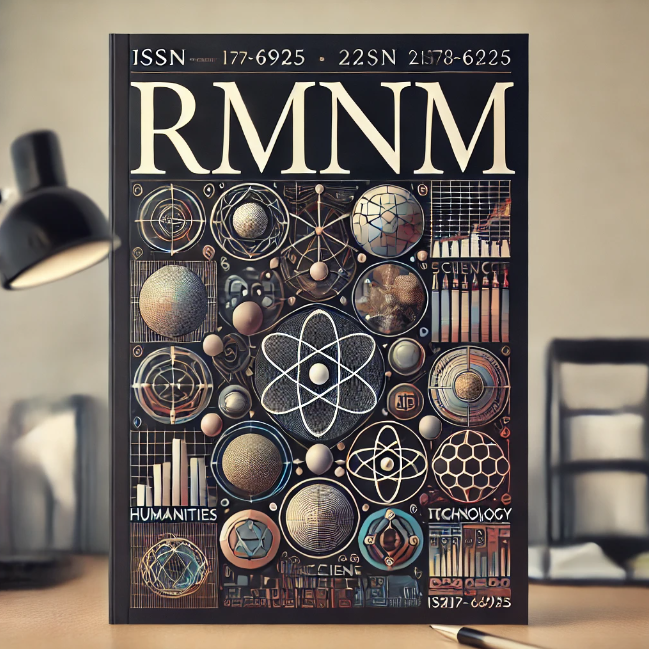WHAT ARE ACTIVE METHODOLOGIES AND HOW DID THEY ARISE?
DOI:
https://doi.org/10.61164/rmnm.v12i4.3392Keywords:
Active learning, Current education, Active methods, Innovative methodologyAbstract
Most students have shown significant disinterest in the classroom, presenting low participation and difficulties in the learning process. This phenomenon can be attributed, in large part, to the quality of the education provided. When students are exposed to ineffective education, characterized by the absence of innovative methods and by repetitive and monotonous classes, it is understandable that their interest in learning and participating becomes scarce. In this context, the so-called active methodologies emerge, which are the object of study of this article, and its objective is to clarify the definition of active methodologies and briefly examine their historical trajectory, that is, to understand how they emerged. Thus, the research question is: What is the definition of active methodologies and how did they emerge? Regarding the methodology, this work is classified as a narrative review research, with a qualitative approach and basic nature. Data collection was carried out through material already prepared and published on the subject. The data were analyzed in an interpretative manner. The results show that these methodologies emerged a long time ago and are configured as pedagogical approaches in which the student assumes the role of protagonist of his/her own learning. These methodologies aim not only to engage students in a more dynamic and meaningful way, but also to foster an educational environment that values interaction and reflection, essential for the construction of solid and lasting knowledge.
References
BACICH, Lilian; MORAN, José. Metodologias ativas para uma educação inovadora: uma abordagem teórico-prática. Porto Alegre: Penso, 2018.
CAMARGO, Fausto. DAROS, Thuinie. A sala de aula inovadora: estratégias pedagógicas para fomentar o aprendizado ativo. Porto Alegre: Penso, 2018.
CORDEIRO, Alexander Magno. et al. Revisão sistemática: uma revisão narrativa. Comunicação Científica, v. 34, n. 6, p. 428-431, 2007. DOI: https://doi.org/10.1590/S0100-69912007000600012. Disponível em: https://www.scielo.br/j/rcbc/a/CC6NRNtP3dKLgLPwcgmV6Gf/. Acesso em: 01 dez. 2024.
DEWEY, John. Experiência e educação. 3. ed. São Paulo: Ed. Nacional, 1979.
FERREIRA, Giselle Martins dos Santos; OZÓRIO, Gabriela Gonçalves; MOREIRA, Laélia Carmelita Portela. Metodologias Ativas nas Concepções de Docentes do Ensino Superior: “um nome novo que não diz nada”? Revista Internacional de Educação Superior, v. 9, n. 00, p. 1-24, 2023. Disponível em: https://periodicos.sbu.unicamp.br/ojs/index.php/riesup/article/view/8665518 . Acesso em: 20 jul. 2023.
MINAYO, Maria Cecília de Souza (org.). Pesquisa social: teoria método e criatividade. 34. ed. Petrópolis, RJ: Vozes, 2011.
MORAN, José. Mudando a educação com metodologias ativas. Coleção Mídias Contemporâneas. Convergência Midiáticas, Educação e Cidadania: aproximações jovens, v. 2. Carlos Alberto de Souza e Ofelia Elisa Torres Morales (orgs.). PG: Foca Foto-PROEX/UEPG, 2015.
SILVEIRA, Denise Tolfo; CÓRDOVA, Fernanda Peixoto. Métodos de Pesquisa. Unidade 2 – A pesquisa científica. Porto Alegre: Editora da UFRGS, 2009.
SOARES, Renata Godinho et al. Metodologias ativas de aprendizagem: relato de uma oficina formativa. Educação: Teoria e Prática, v. 33, n. 66, p. 1-24, 2023. Disponível em: https://www.periodicos.rc.biblioteca.unesp.br/index.php/educacao/article/view/16766 . Acesso em: 15 jul. 2023.
WELTER, Renato Brandão; FOLETTO, Denize da Silveira; BORTOLUZZI, Valéria Lensen. Metodologias ativas: uma possibilidade para o multiletramento dos estudantes. Research, Society and Development, v. 9, n.1, p. 1-21, 2020. Disponível em: https://rsdjournal.org/index.php/rsd/article/view/1664 . Acesso em: 14 jul. 2023.
Downloads
Published
How to Cite
Issue
Section
License
Copyright (c) 2024 Revista Multidisciplinar do Nordeste Mineiro

This work is licensed under a Creative Commons Attribution-NonCommercial-ShareAlike 4.0 International License.




